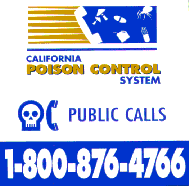Poisons and pets: an overview

Poison control
Many common plants, medicines, chemicals, and foods are toxic to pets. The symptoms can vary from none to severe vomiting, seizures, difficulty breathing, and unconsciousness. Always save any wrappers, ingredient lists, or samples of the suspected poison so our doctors will know how to properly treat your pet.
Don’t hesitate to phone Poison Control if you think your pet has gotten into something poisonous or toxic. They will tell you what to do next.
Also, contact us immediately if you suspect your pet may have eaten something poisonous. Do not wait for symptoms to appear! Contact us at 530-758-5650 for further help or to arrange an emergency visit.
ASPCA Poison Control Center
The ASPCA Animal Poison Control Center is another resource: 888-426-4435
www.aspca.org/apcc (there may be a charge for advice)
Some common problems
- Onions: Raw bulbs and powders of onion are toxic to dogs and cats. Never give these foods to your pets!
- Any type of outdoor mushroom should be considered dangerous. If you think your pet has ingested mushrooms from the yard, call Poison Control (1-800-876-4766) and a veterinarian for more information. Seek treatment immediately. Do not wait until symptoms appear! They may not appear until many hours later. Intense vomiting and diarrhea can lead to liver failure and death.
- Walnuts vs. dogs: Walnuts that have been left on the ground in damp areas grow a mold that is extremely toxic if ingested. To avoid “moldy walnut poisoning”, as well as the potential for intestinal obstruction caused by the ingestion of whole walnut shells, keep yards free of all fallen walnuts. Contact your veterinarian if you suspect your dog has eaten walnuts, or if your dog displays any signs of vomiting, tremors or seizures.
- Easter lilies vs. cats: Easter lilies can cause acute renal failure in cats if they ingest even a small amount of the plant. Keep these plants away from cats! Contact your veterinarian if you suspect your cat has eaten any part of a lily plant.
DANGERS FOR ALL PETS
DANGERS FOR DOGS
DANGERS FOR CATS
EMERGENCY CARE
Urgent Question?
Immediate pet emergency?
Call 530-758-5650.
If the clinic is closed, follow the instructions to leave a message or receive emergency clinic information.
Toxicity Index
- Major Toxicity: These plants may cause serious illness or death.
- Minor Toxicity: Ingestion of these plants may cause minor illnesses such as vomiting or diarrhea.
- Oxalates: The juice or sap of these plants contains needle-shaped oxalate crystals. These crystals can irritate the skin, mouth, tongue, and throat, resulting in throat swelling, breathing difficulties, burning pain, and stomach upset.
- Dermatitis: The juice, sap, or thorns of these plants may cause a skin rash or irritation. Wash the affected area of skin with soap and water as soon as possible after contact. The rashes may be very serious and painful.
